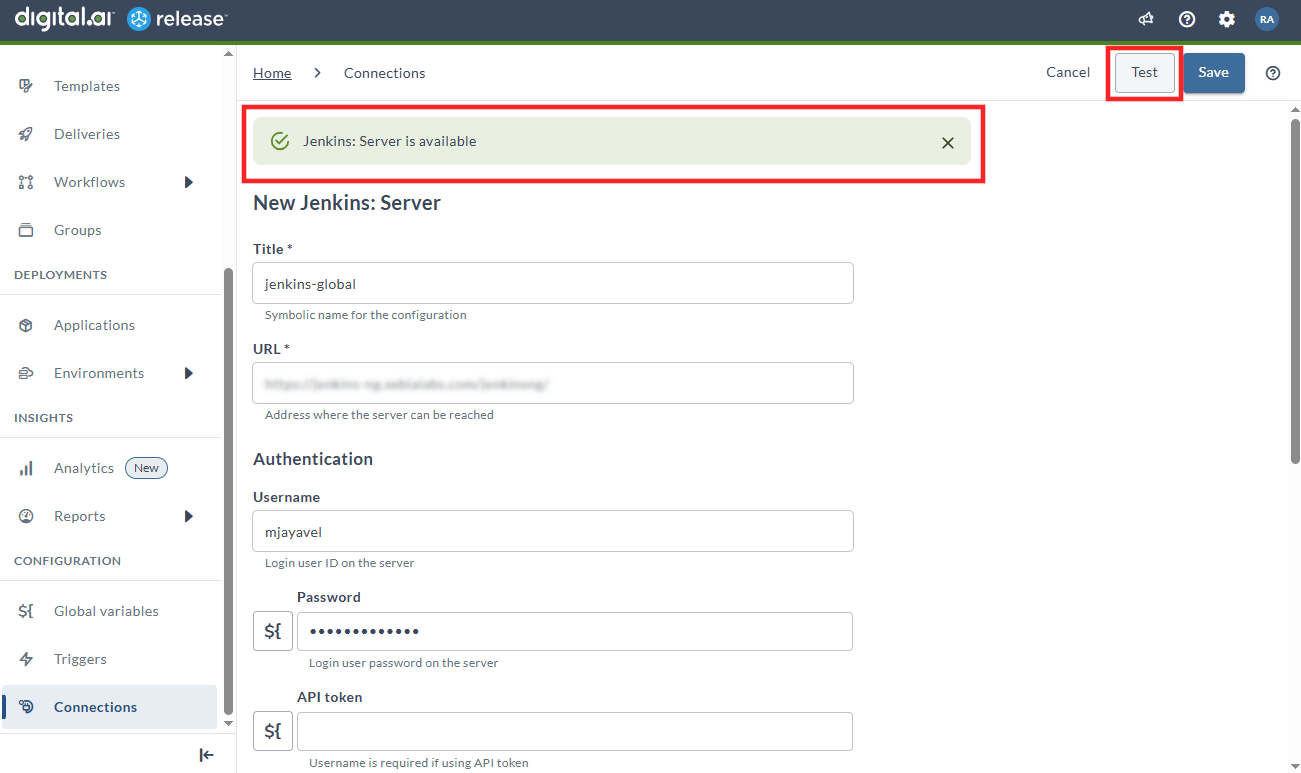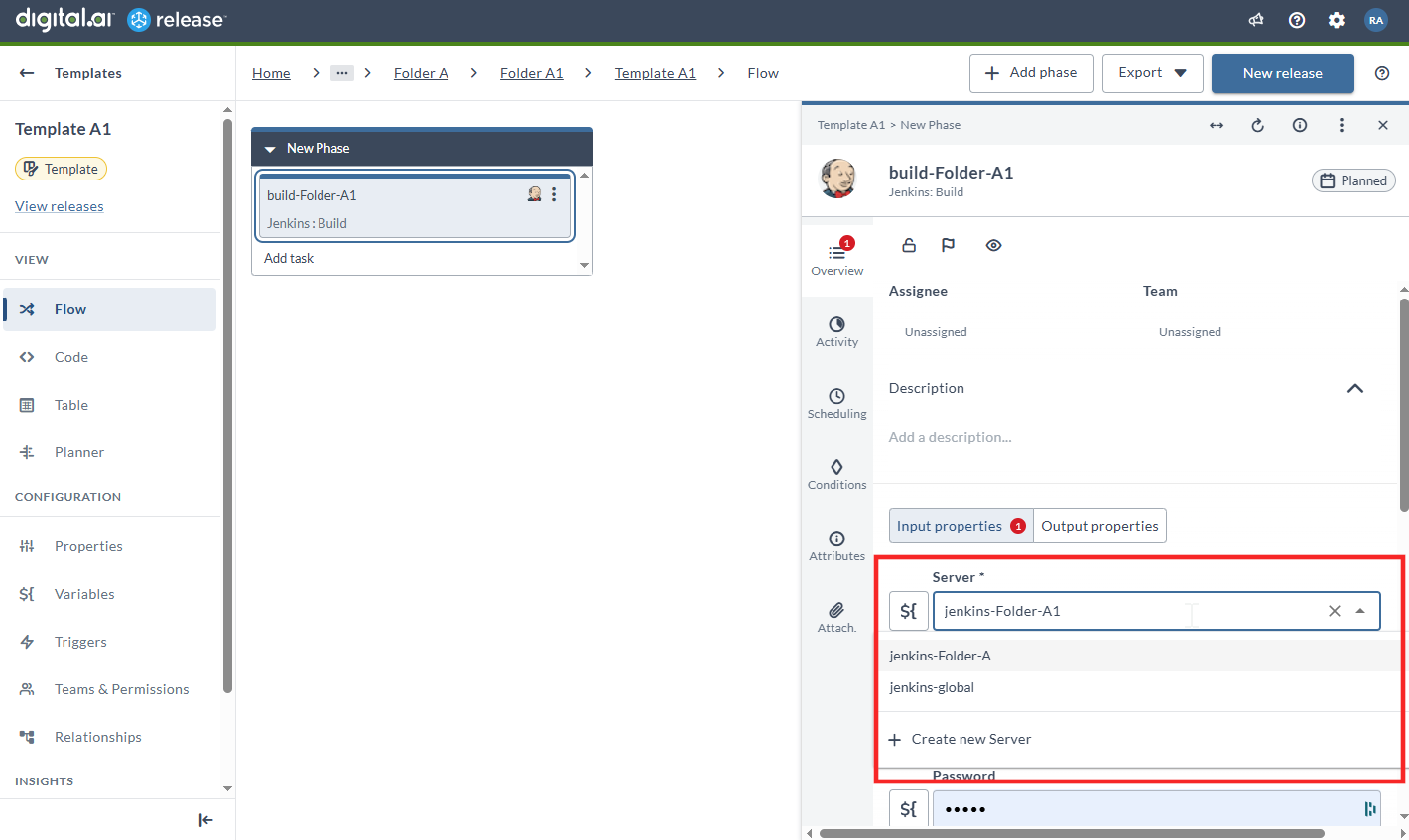Connections
Connections are used to configure Release to integrate with third-party applications. Connections are integration credentials that store authentication information required for Release plugins to securely communicate with third-party applications.
A connection typically contains user credentials or authentication tokens needed to access external systems. Depending on the target integration, Release supports various authentication protocols:
- Username and password authentication
- OAuth and OpenID Connect (OIDC)
- API keys and tokens
- Certificate-based authentication
- SSH keys
For example, when connecting to a Jenkins server, you might use username/password credentials, while connecting to cloud services often requires OAuth or API tokens. These credentials are securely stored and managed within Release, allowing plugins to authenticate and interact with external systems without exposing sensitive information to end users.
Folder-level Connections Only (SaaS)
In SaaS, only folder-level connections are supported. Global connections are not available.
Connections must be created at the folder level. These connections are available to the folder and its sub-folders, if any exist. Templates, releases, and triggers within a folder can use the connections defined in that folder and any parent folders.
Here's an illustration of how folder-level connections are inherited by templates:
(Root folder)
├──> Connection Root
├──> Template Root (inherits Connection Root only)
│
├──> [Folder A]
│ ├──> Connection A
│ ├──> Template A (inherits Connection Root + Connection A)
│ │
│ ├──> [Folder A1]
│ │ ├──> Connection A1
│ │ ├──> Template A1 (inherits Connection Root + Connection A + Connection A1)
│
├──> [Folder B]
├──> Connection B
├──> Template B (inherits Connection Root + Connection B)
The following table summarizes which connections are available in the templates for each folder:
| Template | Inherited Connections |
|---|---|
| Template Root | Connection Root |
| Template A | Connection Root, Connection A |
| Template A1 | Connection Root, Connection A, Connection A1 |
| Template B | Connection Root, Connection B |
Create Folder-level Connections
- Log in to Release
- Select Folders from the sidebar
- Select the folder you want to set up connections for
- Select Connections from the sidebar
- Set up one or more connections for the integrations you need
Connections created in a specific folder are available to that folder and its sub-folders only. Templates and releases in the folder and its sub-folders can use these connections.
Test Connection
Test your connection with the third-party application before saving to ensure it works properly.

Example
Here is an example to illustrate the connections available to a Jenkins build task in Template A1 that is in Folder A1.
Connections Available to Template A1 in Folder A1

Template A1 inherits connections from the root folder, Folder A, and Folder A1.